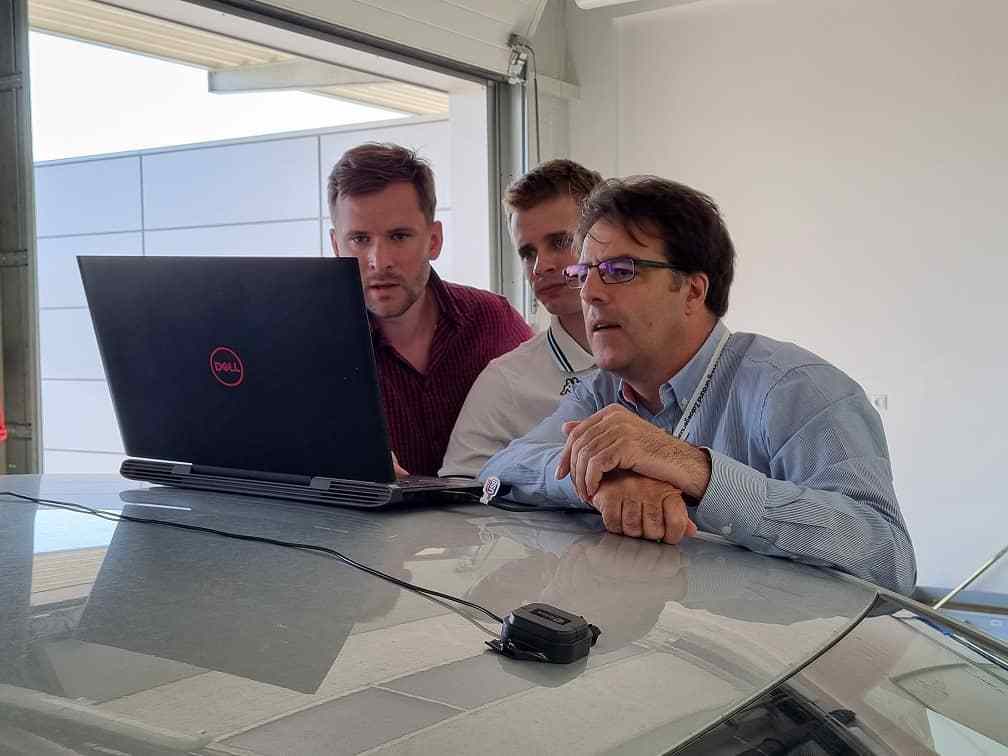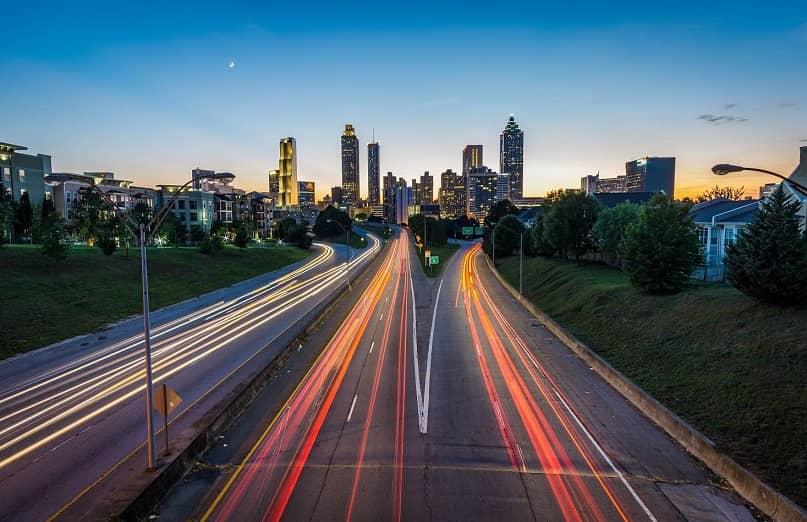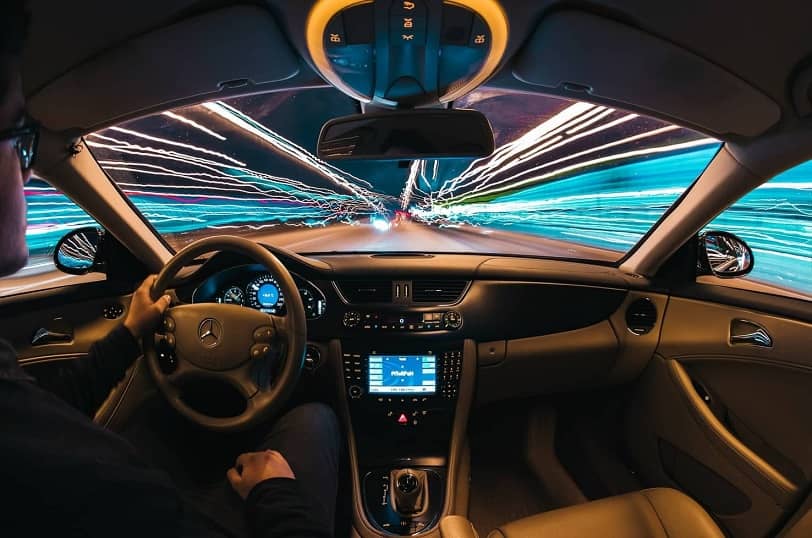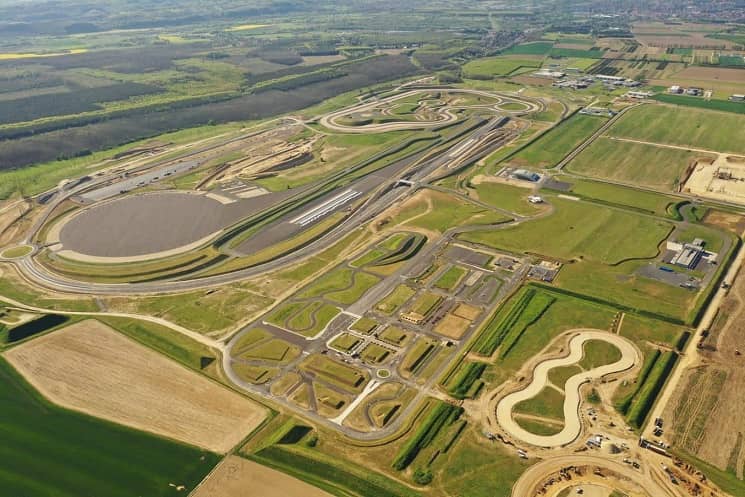Autonomous driving technology is rapidly developing, and it completely changes the automotive industry, transportation, and our everyday lives. We interviewed the presenter of the September edition of the Alumni Hungary Webinar Series, Professor Zsolt Szalay, the Head of the Department of Automotive Technologies at the Budapest University of Technology and Economics, and the Head of Research and Innovation of ZalaZONE Automotive Proving Ground on this increasingly growing industry.
How did you become interested in the field of self-driving vehicles?
Originally I am an electrical engineer, but I was always interested in cars. After my studies, I joined an international company where I led the Software Development team, and I was also responsible for the field of safety. From the early 2000’s I have been working at the Budapest University of Technology and Economics – BME, where researches on automated vehicles were already conducted from the late nineties. At that time we did not call the field autonomous driving, but we used the term “intelligent vehicles”. Since then we have participated in many European level projects with BME in relation to autonomous driving technologies.

You are also the founder and head of the BME Automated Drive Laboratory. What does this lab do?
The Automated Drive Laboratory was founded in 2015 when we created a new strategy for the Department of Automotive Technologies at BME. The lab aims to do cutting-edge research and development activities in the whole spectrum of highly automated and autonomous road vehicles. As an academic research group, the lab intends to connect academic and industrial competencies, and we also publish our scientific and education results on our website.
A couple of years ago, there was a big hype, that the time of the self-driving cars had finally come. However, the initial enthusiasm has become a bit more moderate recently. As an expert in the field, when do you think fully automated vehicles become widespread?
It will take a much longer time. Just to give the framework for this: vehicle automation is divided into six levels, in which level zero means the human driver and level five means that in all driving situations the vehicle is capable of performing equally good as a human. Currently, all over the world, the maximum level of automation is level two. That is when the driver is assisted by the vehicle, for example in the steering- and in the brake and gas pedal handling tasks, but it is still the driver who has the responsibility. In spite of this, some car manufactures communicate that they have full self-driving, which is a very dangerous statement. I believe that by the end of this century, we can reach level four automation, which means that certain driving tasks, for example, driving on a highway can be fully delivered by the vehicle without any human interaction.

Are humans ready to give out control to the vehicles?
It is transforming, and it is no question that automated vehicles will be the future. Not a while ago, back in 2006-2007, when the Seventh Framework Programme of the European Union was developed, the European Commission stated that there will be no time when the European citizens would accept fully automated driving. Only a decade later in 2017, everybody expected that within one or two years, due to the artificial intelligence development, fully automated vehicles will run all over the European roads. I would say that both of these expectations were a little bit far from reality. We also have to consider, that the news on the accidents of autonomous cars convey the message that the automated vehicle technology is still not ready. This can delay the appearance of automated mobility and set back public acceptance to decades. Safety is first, this is what everyone expects from autonomous driving.

The topic of autonomous vehicles also raises ethical questions such as, how the self-driving industry will affect the job market. Many fear that the new technology will lead to an increase in job losses. How do you see that?
My vision is that the new technology will only change human behaviour and human jobs. The autonomous driving industry will generate new jobs that did not exist before, with a lot of new opportunities. Jobs that are more monotonous could be easier replaced by AI or automated or autonomous systems, and new jobs that require creative thinking will appear.
Let’s talk about the ZalaZONE project, where you are the Head of Research and Innovation. This is the largest test track in central Europe. Why and how did this project start back in 2017?
The automotive industry has strategic importance in Hungary. More than 10% of the GDP and 20% of the export is produced by this field. Many vehicle manufacturers and their suppliers have settled their manufacturing locations in Hungary, and they had an increasing demand for a proving ground to test their solutions locally. Therefore in 2015, we started to develop the project for a proving ground that is, beyond conventional vehicle tests also suitable for connected and automated vehicle testing. After 10 months of intensive work between the university, industrial partners, research institutes and government authorities, the working group delivered the requirement specification for ZalaZONE. The construction started very quickly on a 265-hectare field outside the Hungarian city of Zalaegerszeg, and by now almost all the modules are ready. We are really proud of what we have achieved so far and have received great international feedback.

Why ZalaZONE is unique compared to other proving grounds?
ZalaZONE has 8+1 unique testing propositions due to its physical design. A state-of-the-art digital infrastructure (with traffic control, cameras and sensory systems) is being built on this. There is also a centimetre-precise virtual representation of the physical proving ground available to test critical situations in a quicker and safer way. A very important feature of ZalaZONE is that the university relations and the academic research are an inherent part of the project: we have 3 strategic university partners and 11 local and international universities who cooperate with us. Industrial companies see these close university relations as a validation for the highly trained human resources and they are willing to perform tests here and to establish their research and development centres around ZalaZONE.
What is your personal vision for the next 10 years in the self-driving industry?
Testing and proving grounds such as ZalaZONE will become more and more important. The accidents have also proven that we have to thoroughly test, and also use the virtual and augmented reality capabilities of the simulation for a higher level of safety. Looking at the current legislation, I think sooner or later, the first L3 (level three) systems will appear on the market. This also needs a certain level of intelligence from the traffic- and road infrastructure to handle both the human-driven- and automated vehicles safely, as mixed traffic will still surely exist for a long time on the public roads
